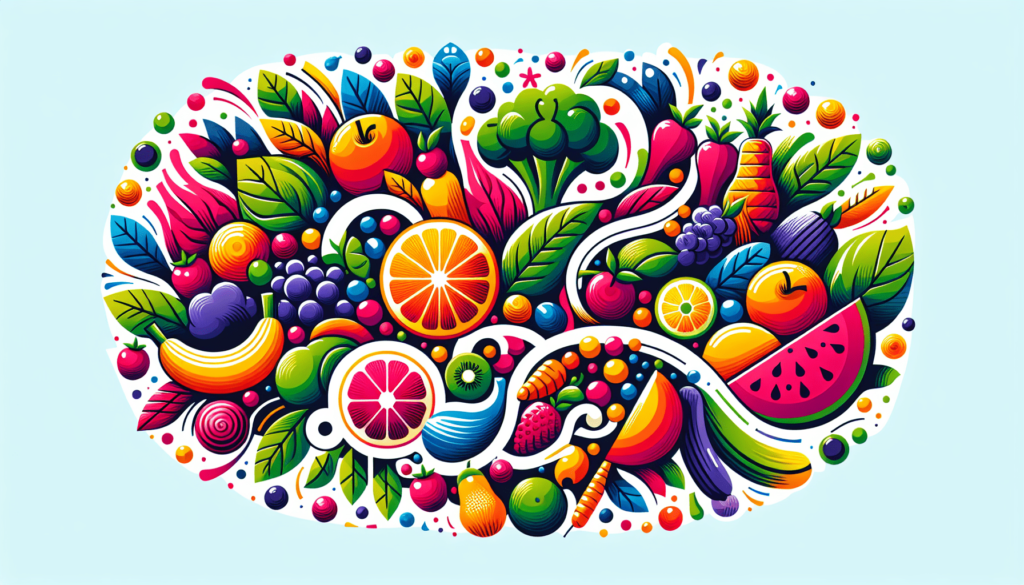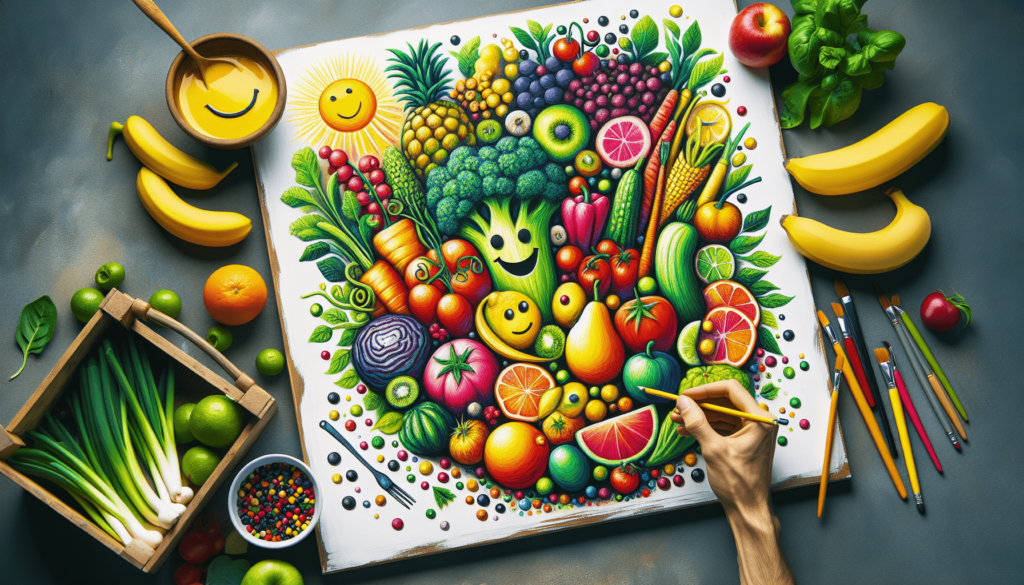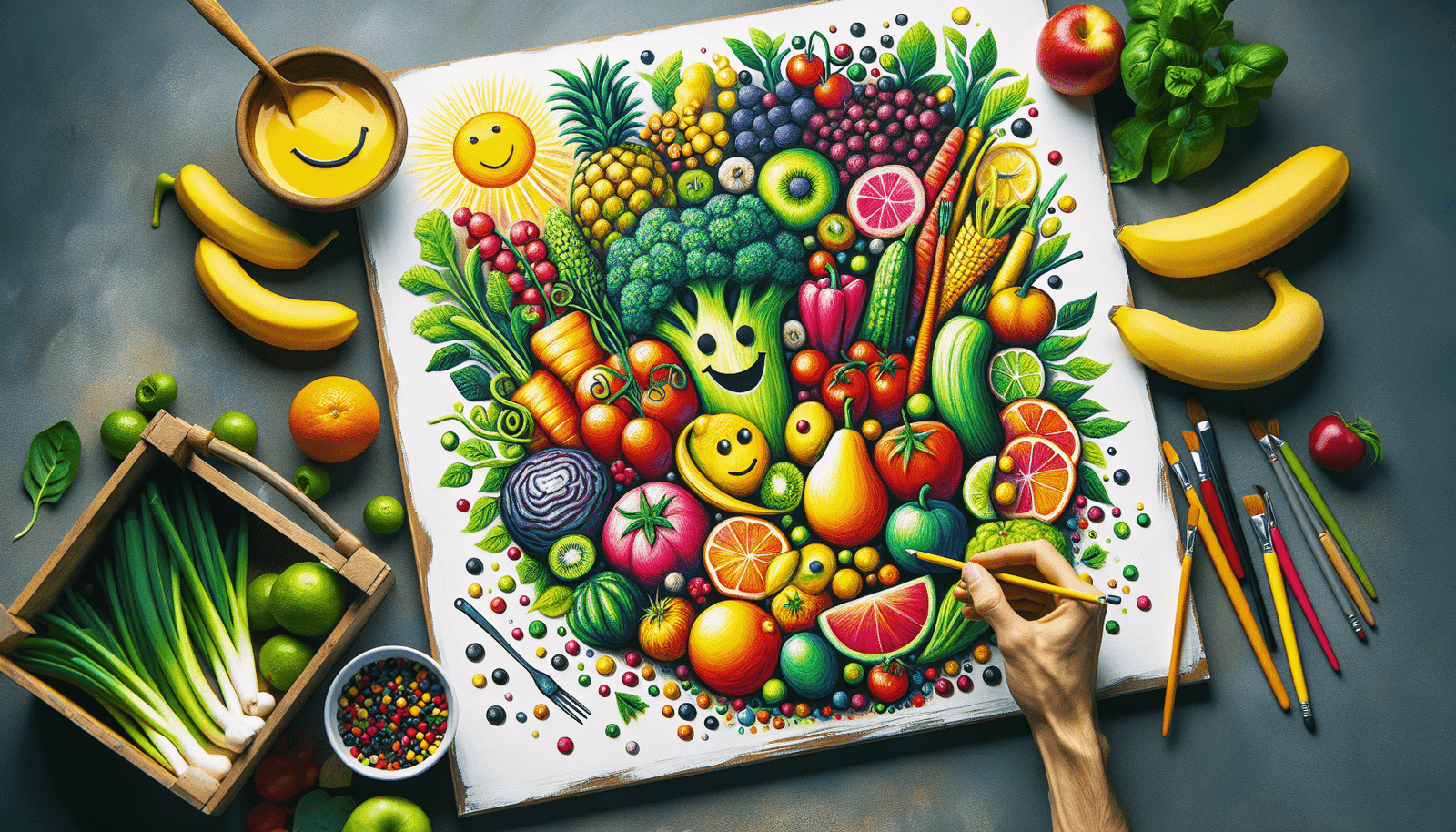Welcome to “The Essential Guide To Food And Mood!” In this article, you will discover how the food you eat can directly impact your mood and overall well-being. From the connection between gut health and mental health to the importance of balancing blood sugar levels, this guide will provide you with valuable insights on how to nourish your body and mind for optimal happiness and vitality. Get ready to learn how simple dietary changes can make a big difference in how you feel every day!
The Essential Guide to Food and Mood
Have you ever noticed how your mood can be influenced by the foods you eat? In this essential guide, we will explore the connection between food and mood, and how you can make the best choices to support your mental well-being.
The Gut-Brain Connection
Did you know that your gut health plays a significant role in your mental health? The gut and brain are connected through a complex communication network known as the gut-brain axis. This means that the foods you eat can directly impact your mood and mental well-being.
How Your Gut Health Affects Your Mood
Your gut is home to trillions of bacteria that play a crucial role in your overall health. When your gut is out of balance, it can lead to inflammation and other issues that can negatively impact your mood. Eating a diet rich in fiber, fruits, vegetables, and probiotic-rich foods can help support a healthy gut and a positive mood.
Foods That Boost Your Mood
Certain foods are known to have mood-boosting properties. Including these foods in your diet can help regulate your mood and support your mental well-being.
Dark Chocolate
Who doesn’t love an excuse to indulge in some dark chocolate? Dark chocolate contains antioxidants that can help reduce inflammation and improve blood flow to the brain, leading to a boost in mood.
Fatty Fish
Fatty fish such as salmon, mackerel, and sardines are rich in omega-3 fatty acids, which are essential for brain health. Omega-3s have been linked to a reduced risk of depression and can help improve mood and cognitive function.
Berries
Berries are not only delicious but also packed with antioxidants and vitamins that can support brain health. The high levels of Vitamin C in berries have been shown to reduce symptoms of stress and anxiety.
Turmeric
Turmeric is a powerful anti-inflammatory spice that has been used for centuries in traditional medicine. Curcumin, the active compound in turmeric, has been shown to have mood-boosting properties and may help alleviate symptoms of depression.

Foods to Avoid for a Better Mood
Just as certain foods can boost your mood, others can have a negative impact on your mental well-being. Here are some foods to avoid if you want to maintain a positive mood.
Processed Foods
Processed foods are often high in sugar, unhealthy fats, and artificial additives, all of which can contribute to inflammation and disrupt the balance of bacteria in your gut. Opt for whole, unprocessed foods whenever possible to support a positive mood.
Sugar
While a sugary treat may give you a temporary mood boost, the crash that follows can leave you feeling irritable and fatigued. Excess sugar consumption has been linked to an increased risk of depression and anxiety, so it’s best to limit your intake.
Caffeine
While a cup of coffee can give you a jolt of energy, too much caffeine can disrupt your sleep and leave you feeling anxious and on edge. Limit your caffeine intake and opt for herbal teas or decaf options to support a calm and stable mood.
The Importance of Balanced Nutrition
Maintaining a balanced diet is essential for supporting both your physical and mental well-being. Eating a variety of nutrient-dense foods can help ensure that you are getting all the vitamins and minerals your body needs to function optimally.
The Role of Macronutrients
Macronutrients, including carbohydrates, proteins, and fats, are the building blocks of a healthy diet. Carbohydrates provide energy for your brain and body, while proteins and fats are essential for cell growth and repair. Including a balance of these macronutrients in your meals can help stabilize your mood and energy levels.
Micronutrients and Mood
Micronutrients such as vitamins and minerals play a crucial role in brain function and mood regulation. Deficiencies in nutrients like Vitamin D, B vitamins, and magnesium have been linked to mood disorders such as depression and anxiety. Eating a varied diet rich in fruits, vegetables, whole grains, and lean proteins can help ensure you are getting all the micronutrients you need for optimal mental health.

The Benefits of Mindful Eating
In our fast-paced world, it’s easy to rush through meals without paying attention to what or how we are eating. Practicing mindful eating can help you develop a healthier relationship with food and improve your mood and well-being.
What is Mindful Eating?
Mindful eating is the practice of paying attention to the present moment while eating, without judgment or distraction. By tuning into your body’s hunger and fullness cues, you can learn to eat in a way that supports your physical and emotional health.
Tips for Practicing Mindful Eating
- Eat without distractions, such as watching TV or scrolling on your phone.
- Chew your food slowly and savor each bite.
- Pay attention to your body’s hunger and fullness cues.
- Practice gratitude for the food you are eating and where it came from.
How to Make Sustainable Changes to Your Diet
Making changes to your diet can feel overwhelming, but it doesn’t have to be. By taking small, sustainable steps, you can gradually shift towards a healthier eating pattern that supports your mood and mental well-being.
Set Realistic Goals
Instead of trying to overhaul your diet all at once, start by setting small, achievable goals. Whether it’s adding an extra serving of vegetables to your meals or swapping out sugary snacks for healthier options, taking incremental steps can help you build lasting habits.
Focus on Progress, Not Perfection
Remember that no one is perfect, and it’s okay to have slip-ups along the way. Instead of beating yourself up over a less-than-ideal meal choice, focus on the progress you have made and how you can make better choices in the future.
Seek Professional Help If Needed
If you are struggling with mood disorders or disordered eating patterns, it’s essential to seek professional help. A licensed therapist or nutritionist can provide valuable support and guidance to help you work through your issues and develop a healthy relationship with food.
When to Seek Help
- Persistent feelings of sadness or anxiety
- Changes in appetite or weight
- Obsessive thoughts about food and body image
- Difficulty managing emotions related to food and eating
In Conclusion
The foods you eat have a direct impact on your mood and mental well-being. By choosing nutrient-dense, whole foods and practicing mindful eating, you can support a positive mood and overall health. Remember to be kind to yourself and seek help if you need it. Your mental health is just as important as your physical health, and taking care of both is essential for a balanced and happy life.

